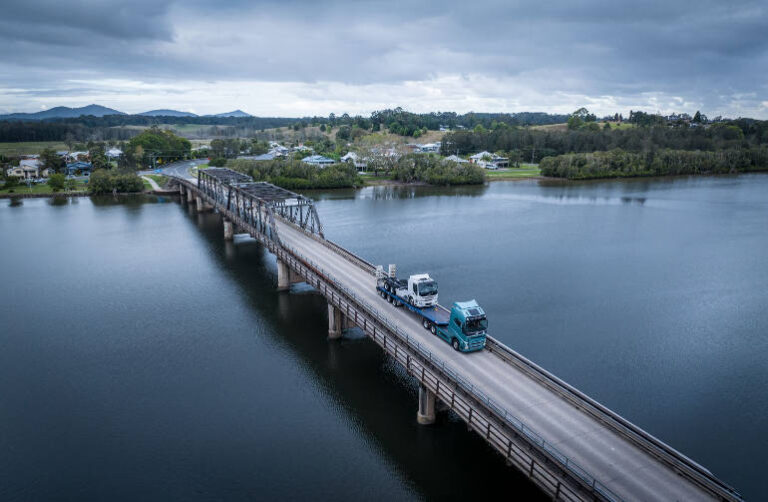The National Road Transport Association (NatRoad) is urging the Australian Government to establish a $3 billion Clean Transport Fund to support the trucking industry’s transition to net zero emissions.
In a new policy paper Stronger Economy, Lower Emissions and their recent submissions on the Transport and Infrastructure Net Zero Roadmap and Low Carbon Liquid Fuels, NatRoad highlighted the critical need for financial backing to ensure the sector can effectively reduce emissions without jeopardising its future.
“Trucking is an essential part of Australia’s economy, yet our industry is under immense pressure,” said NatRoad CEO, Warren Clark.
“With an average profit margin of just 2 percent, a shortage of 26,000 drivers, and the weight of extensive red tape, the proposed roadmap falls short of offering the support needed to help road freight businesses reduce emissions effectively.”
Transport is poised to become the highest-emitting sector by the end of the decade due to Australia’s growing freight task and the projected reduction in emissions from the electricity sector. NatRoad’s policy paper underscores the necessity for a cost-effective transition strategy for road freight transport and advocates for a Low Carbon Fuel Standard (LCFS) to facilitate the gradual integration of renewable diesel and other low carbon fuels.
“A Low Carbon Fuel Standard is vital,” Mr Clark said.
“Without it, we won’t have renewable fuels, so long-haul and regional freight, which are difficult to electrify, will remain heavily reliant on diesel. An LCFS will reduce the carbon intensity of fuels over time, allowing small trucking businesses to continue operating efficiently whilst reducing emissions.”
NatRoad’s call for the establishment of a $3 billion Clean Transport Fund is aimed at:
- Supporting the rollout of electric trucks
- Recharging infrastructure
- Hydrogen solutions
- Boosting efficiency with better heavy vehicle access, and
- Giving trucking operators better information to make low emission investment decisions.
Additionally, a supply chain emissions reduction obligation for big businesses is recommended, ensuring they take responsibility for their scope 3 emissions.
“Big businesses need to back up their green pledges with genuine purchasing commitments,” Mr Clark said.
“Major transport customers can’t simply bank billion-dollar profits while seeking low-cost transport contracts and claiming to be saving the planet. They can do more to offer road freight companies better rates and contract terms to enable low-emission transport solutions.”
Mr Clark says the proposed $3 billion Clean Transport Fund would represent just 2.5 percent of the cost of the 10-year infrastructure pipeline.
“Transport is on track to become the highest emitting sector, but small trucking businesses are not getting the help they need,” he said.
“A $3 billion Clean Transport Fund is a reasonable request, considering the significant public benefits, such as lower emissions and health costs.
“The Government’s transport net zero roadmap will be meaningless without serious investment. Emissions are still rising, and without the right policy framework, net zero will push the industry into crisis.”
NatRoad’s policy paper also calls for regulatory reform, harmonisation, and better information for operators to plan future investment decisions.
“Australia’s roadmap to net zero for transport is not on track, risking our climate targets and pushing the industry into crisis,” Mr Clark said.
“We need a comprehensive transition strategy that secures the future of our supply chains, strengthens our economy, and lowers emissions. The Australian fair go should apply to this transition, protecting jobs and ensuring no one is left behind.”






